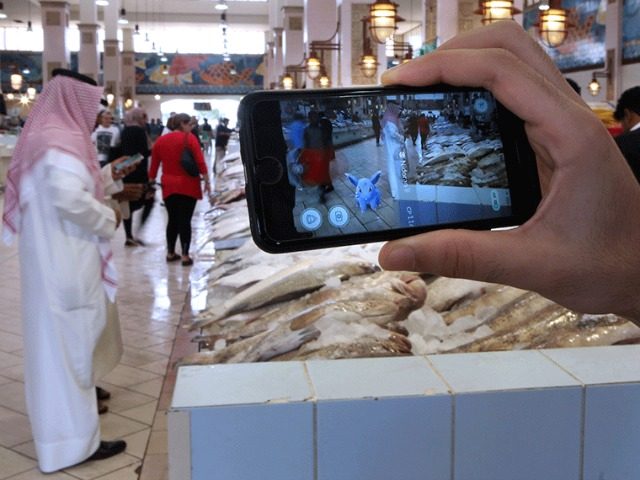Saudi Arabia’s Council of Senior Religious Scholars denied that it had issued a new fatwa against the Nintendo game Pokemon Go on Thursday, though a fatwa dating back to the early 2000s against the Japanese game is still in effect.
“The Council of Senior Religious Scholars denied that it issued a new fatwa about the Pokemon game, and the media reports of that are not accurate. We ask international media to call the ministry to verify information for their reports,” Abdulmohsen Alyas, undersecretary for international communication and media at the Ministry of Culture and Information, told reporters.
The news that Saudi Arabia’s Islamic authorities had issued a fatwa specifically for Pokemon Go – an augmented reality game in which players catch fictional animated creatures in real settings – surfaced earlier this week, when another Saudi agency reminded fans of the game that a fatwa was still in effect against Pokemon entities. The Permanent Committee for Scholarly Research and Ifta republished the text of the 2001 fatwa, which declared Pokemon to be a dangerous infiltration mechanism by “international Zionism” to corrupt Islam.
The 2001 fatwa condemned the Pokemon trading card game specifically, alleging that the symbols that identify types of monsters – fire, water, grass, psychic, etc – were secretly exposing children to “Israel, Christian crosses, freemasonry, and symbols from Japan’s native Shinto religion.”
Reuters notes that Saudi Arabia’s Islamic government is strictly against many common forms of recreation: “cinemas are banned and women’s sports are discouraged as promoting sin.”
Authoritarian nations generally, and Islamic countries in particular, are struggling to assess the potential dangers of the Pokemon Go game. Egypt’s Al Azhar University, considered the top Islamic academic institution in the world, had issued a similar fatwa against Pokemon during the game’s heyday more than a decade ago. It has chosen to republicize the fatwa specifically for Pokemon Go for similar reasons to the Saudi fatwa: it is a “Zionist” game that promotes “Darwinism.” In the game, the creatures can “evolve,” but do so after they gain a certain amount of experience, not over thousands of years as Darwin’s theory argues.
The Egyptian government has also launched an investigation into the potential use of the game for state intelligence gathering. The game “could be used for espionage and information gathering,” Egyptian official Hani al-Nazer told Saudi Arabia’s Al Arabiya this week.
In Russia, officials have argued that Pokemon Go could be a CIA project and must be regulated to prevent Americans from taking advantage of Russian players. Religious leaders have also condemned the game for unspecified reasons; the head of St. Petersburg’s Cossack organization said the game “smacks of Satan.”
The game appears to be growing in popularity nonetheless, with players congregating to catch Pokemon throughout the Arab world, from the UAE to Qatar to Kuwait and Lebanon.

COMMENTS
Please let us know if you're having issues with commenting.